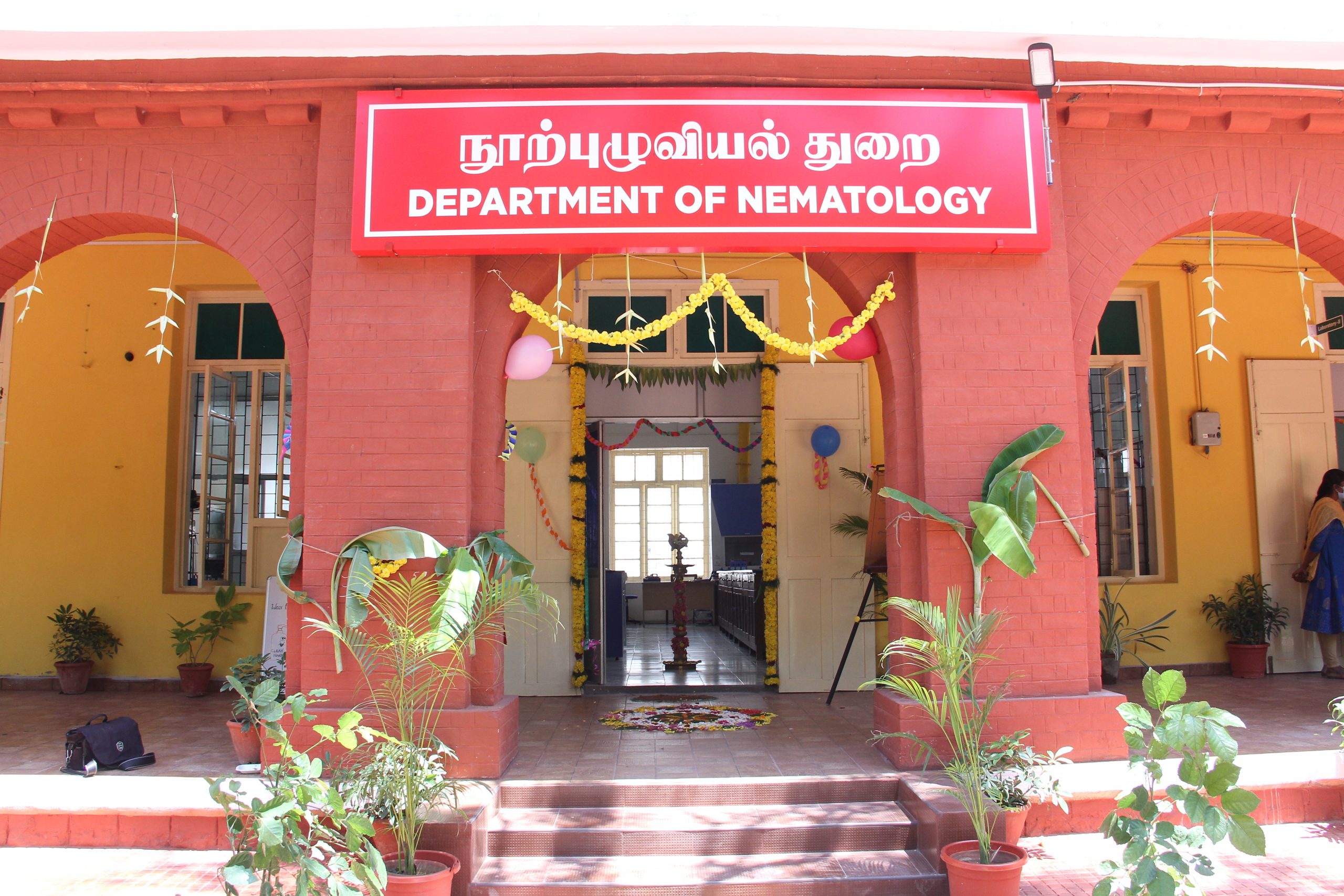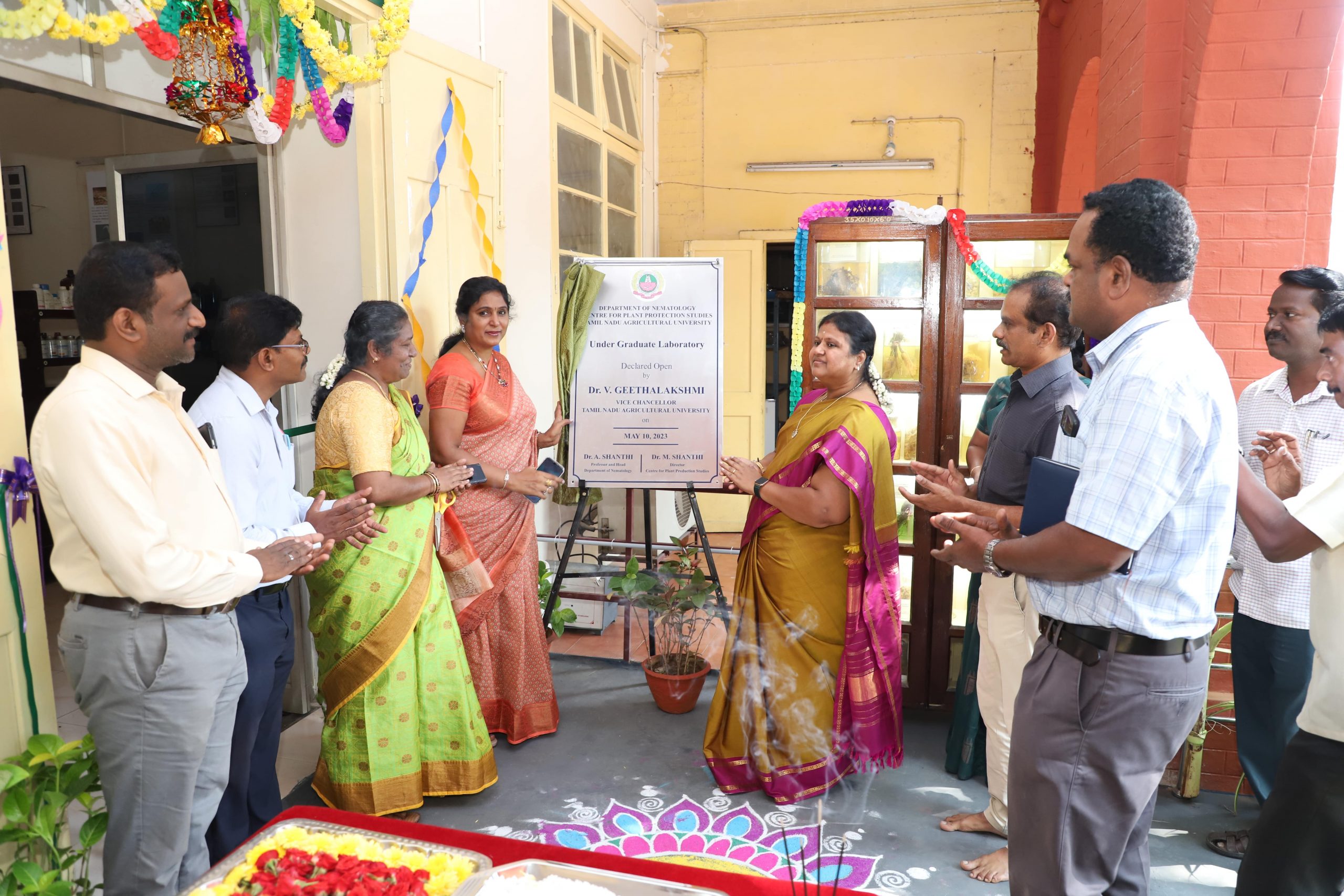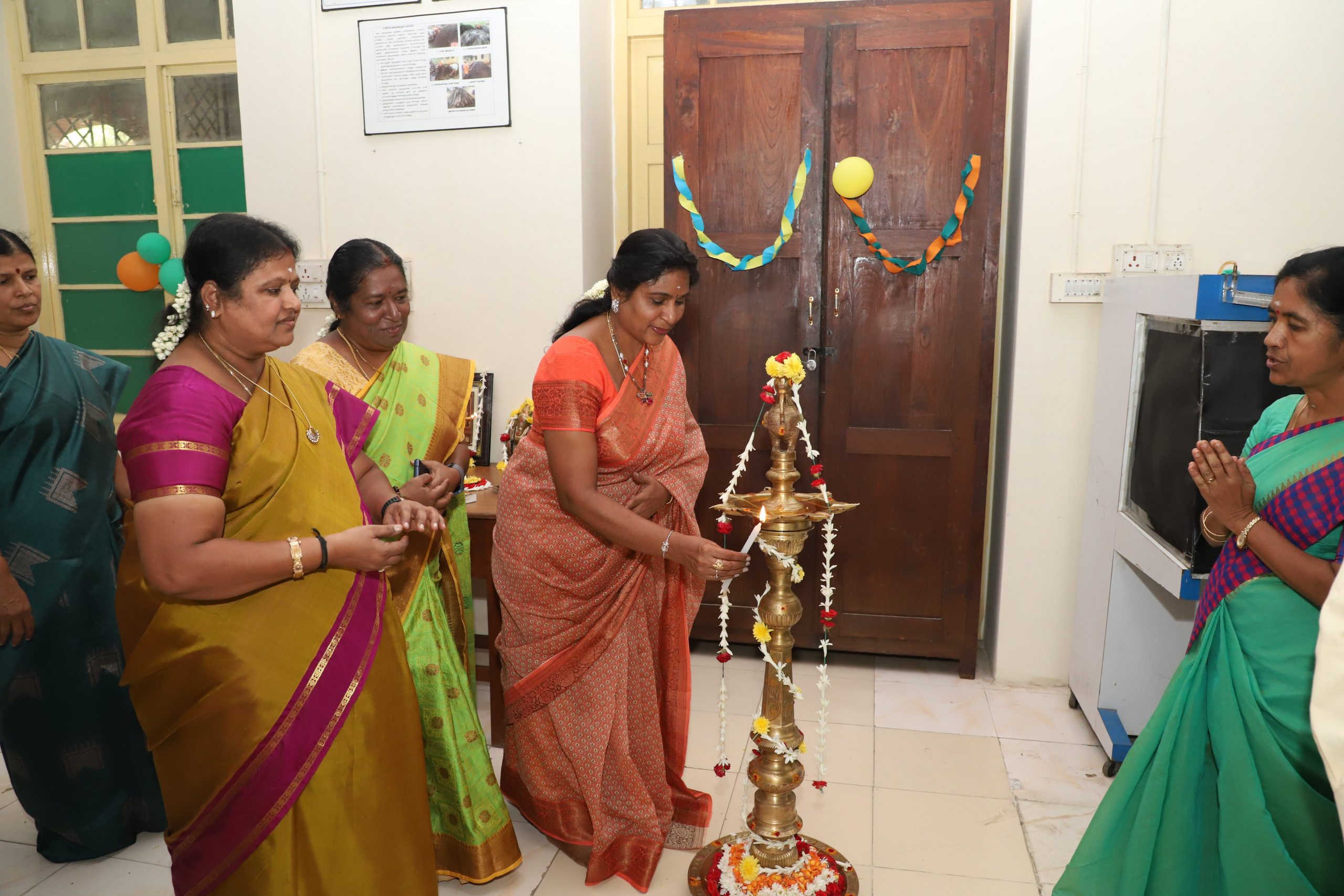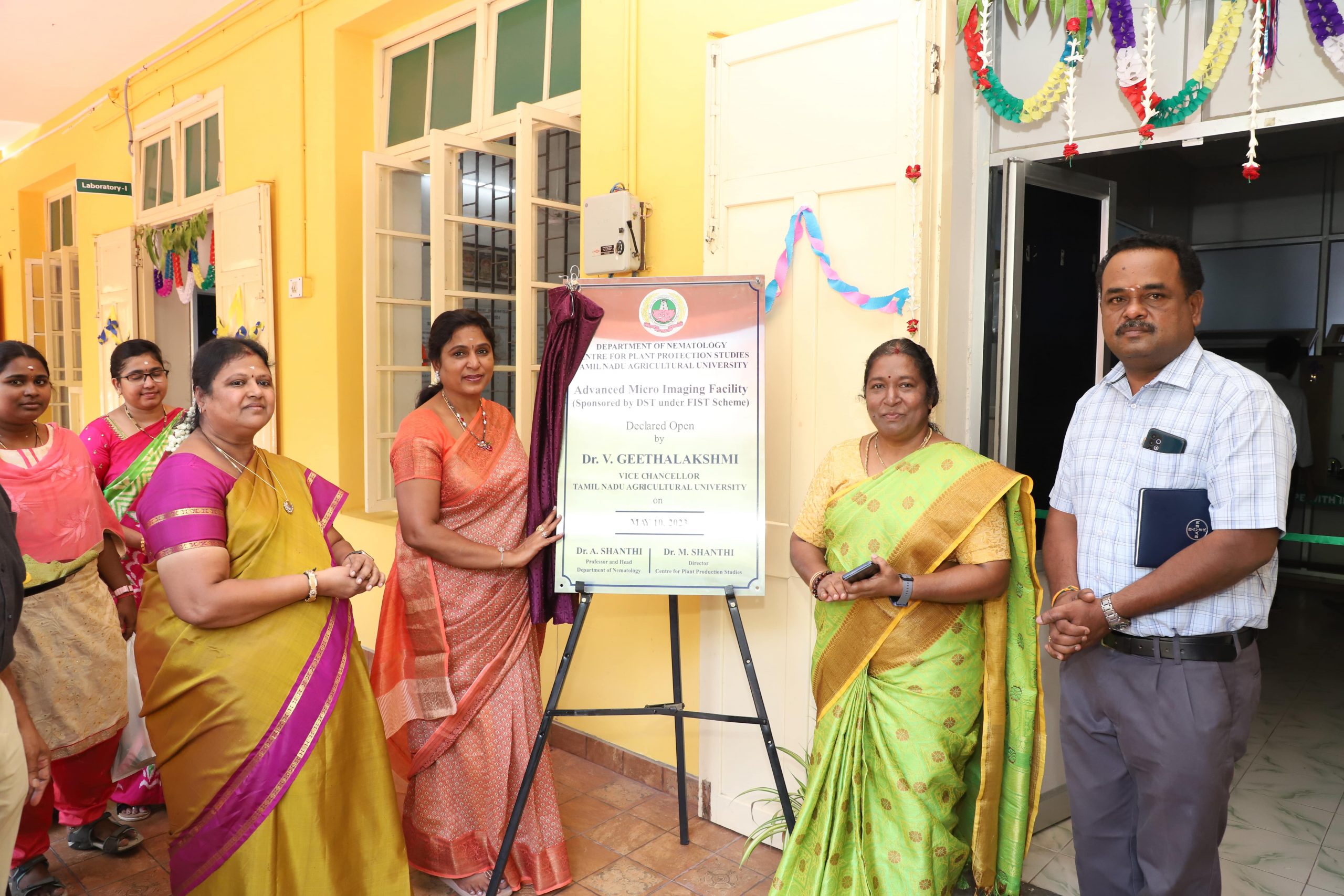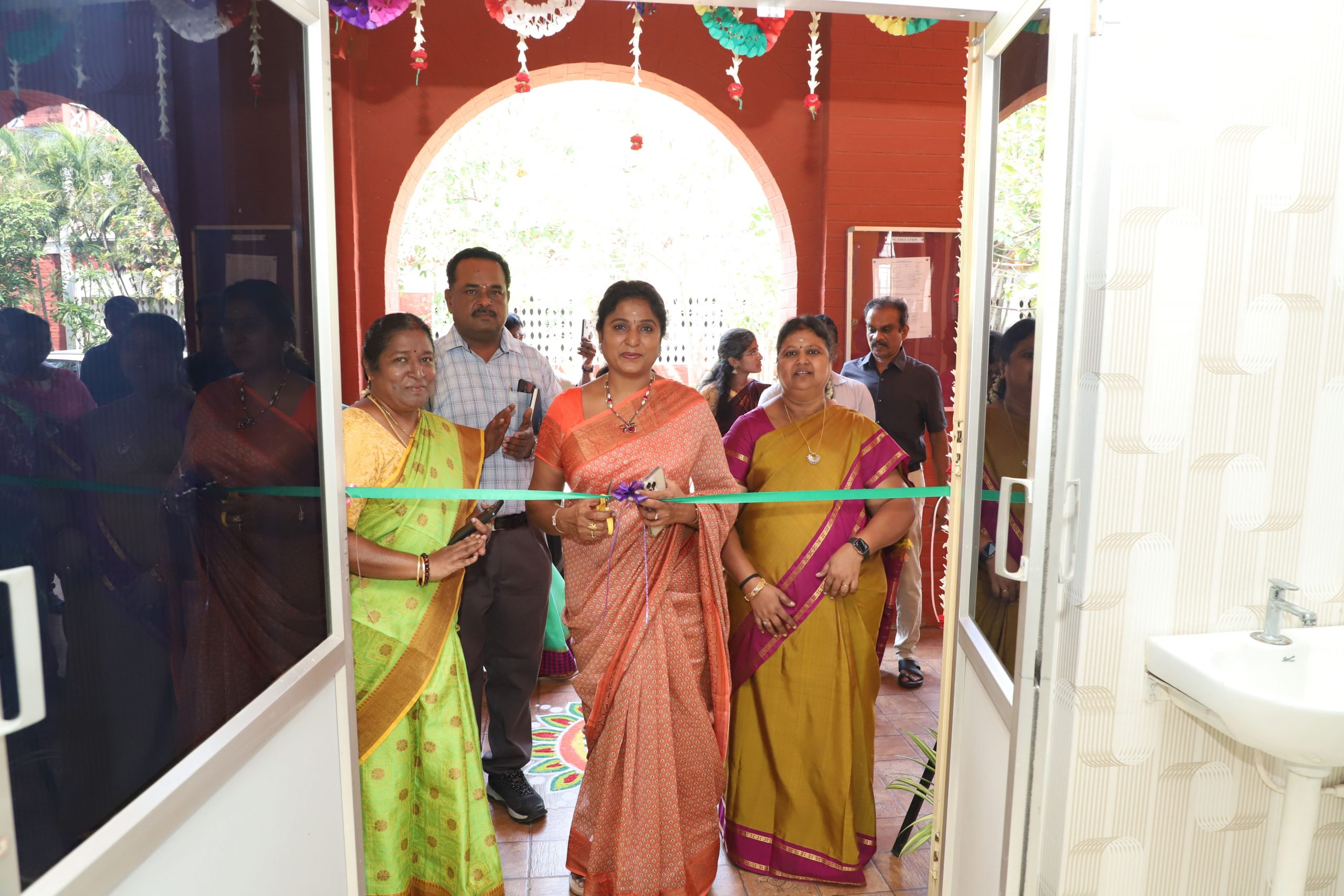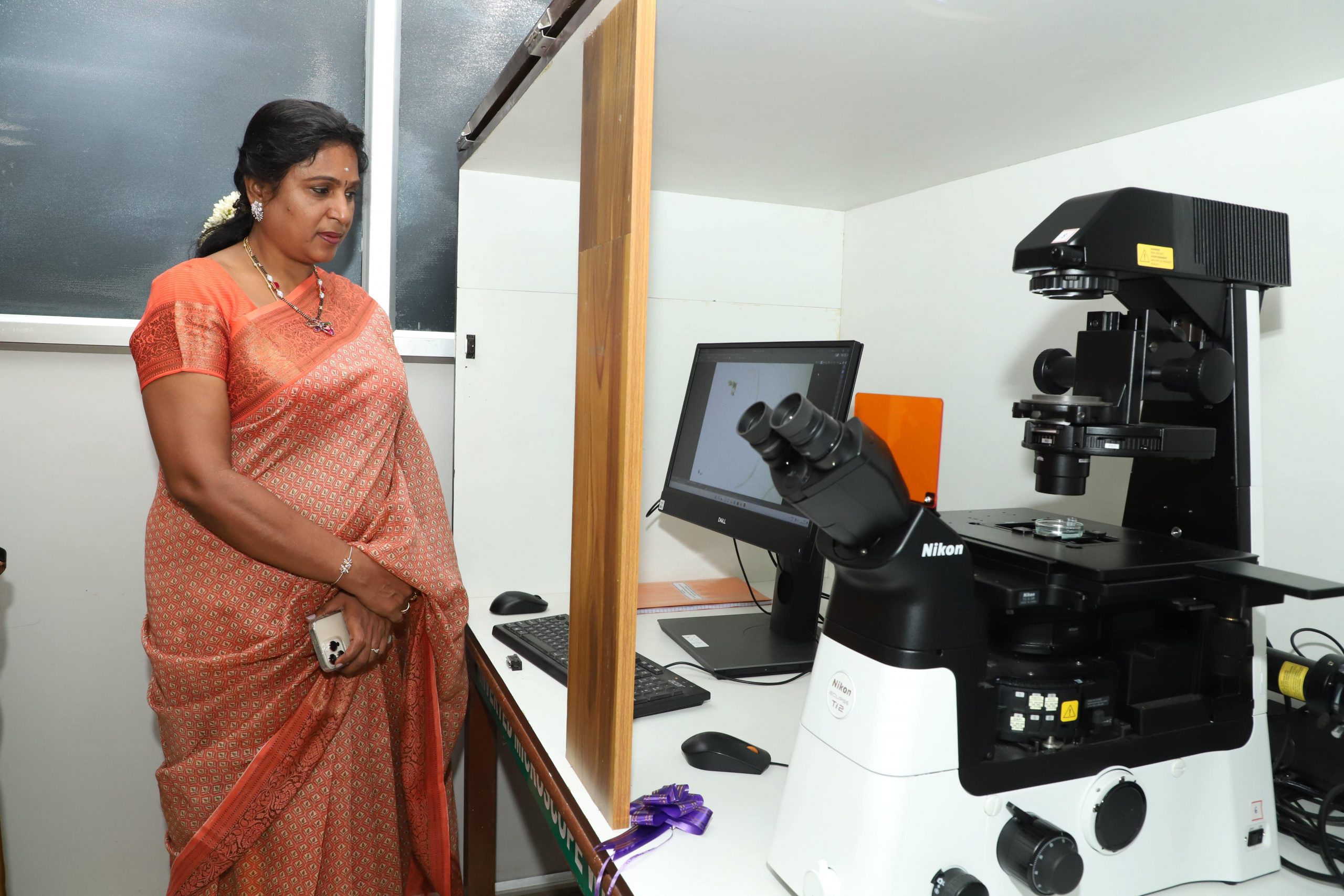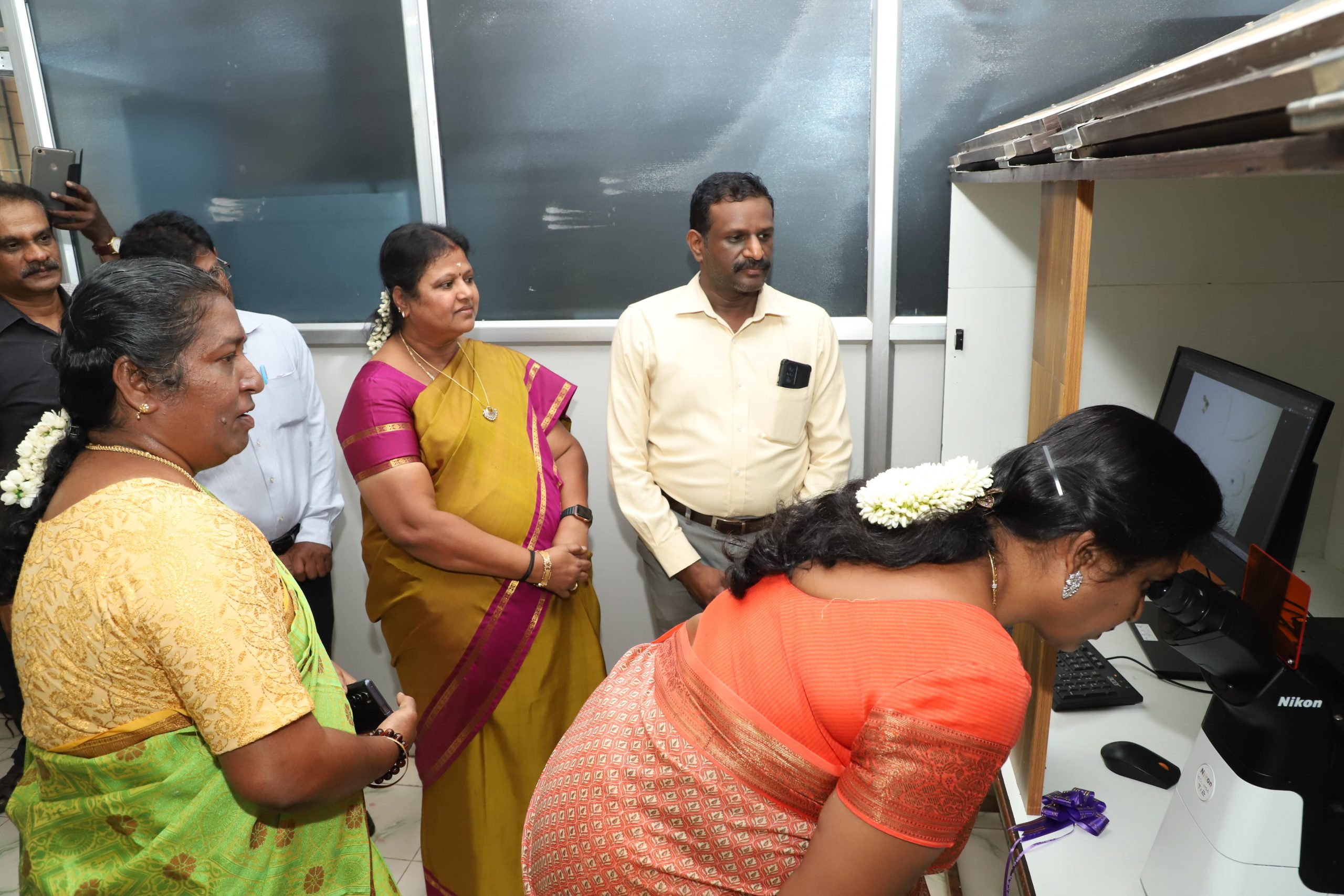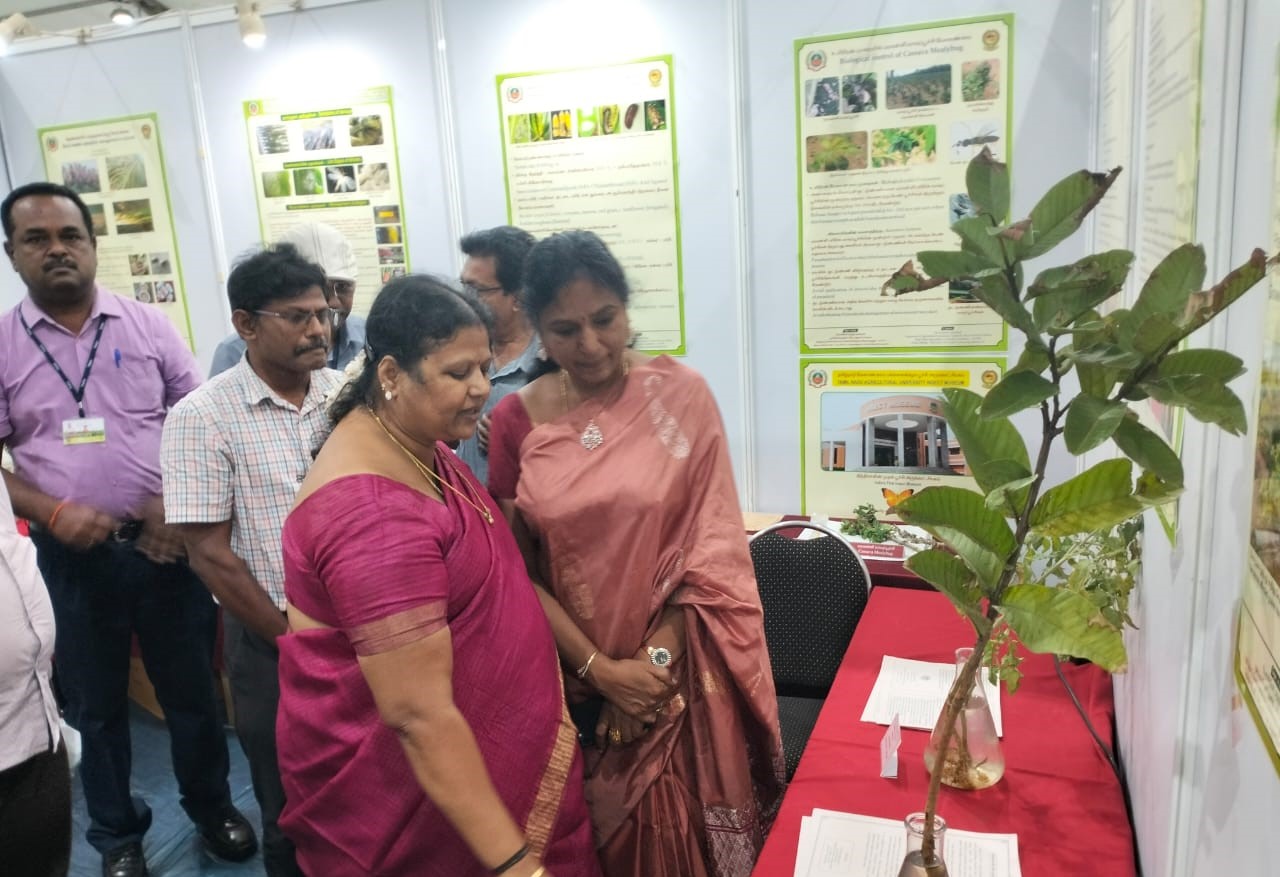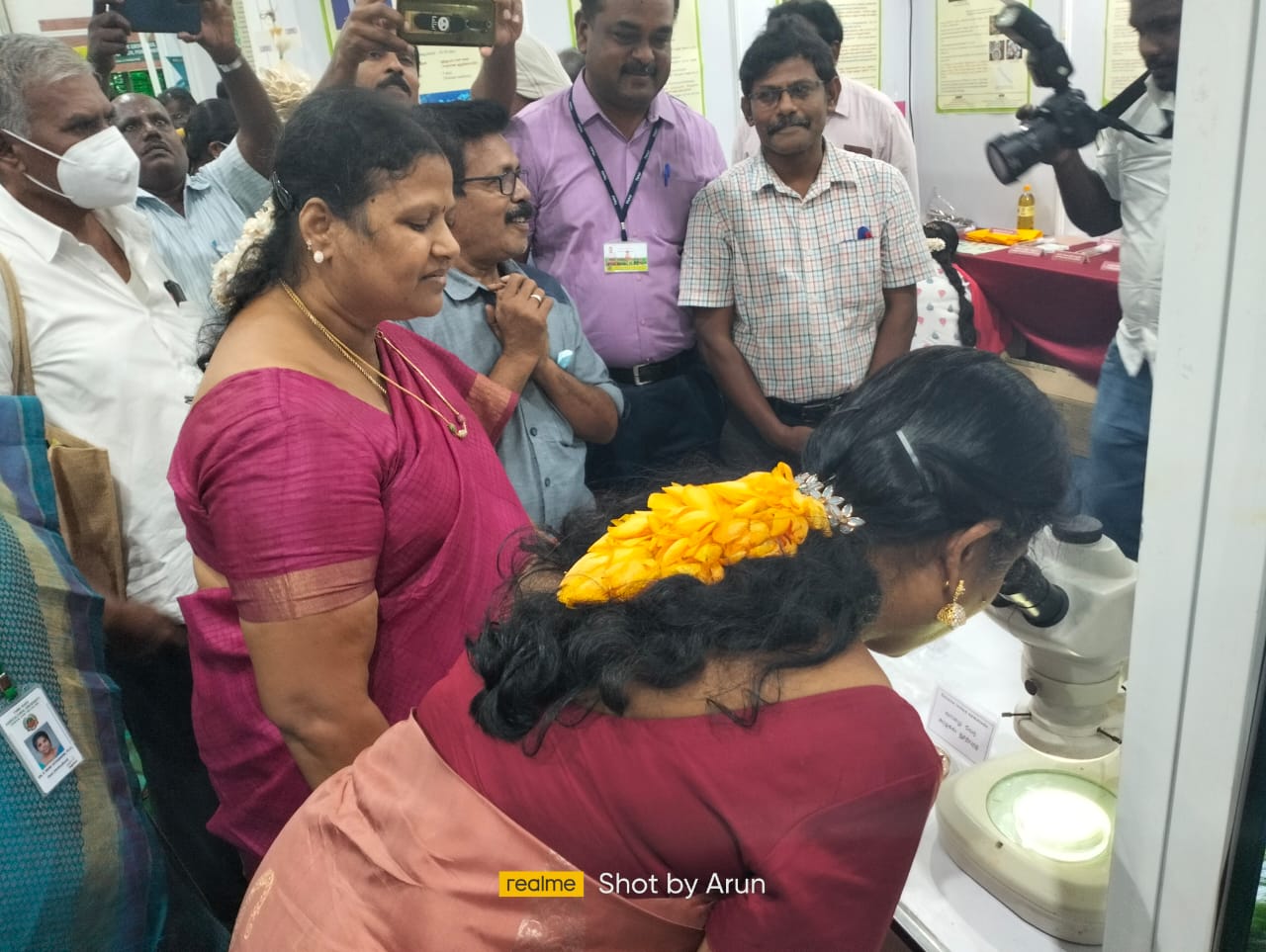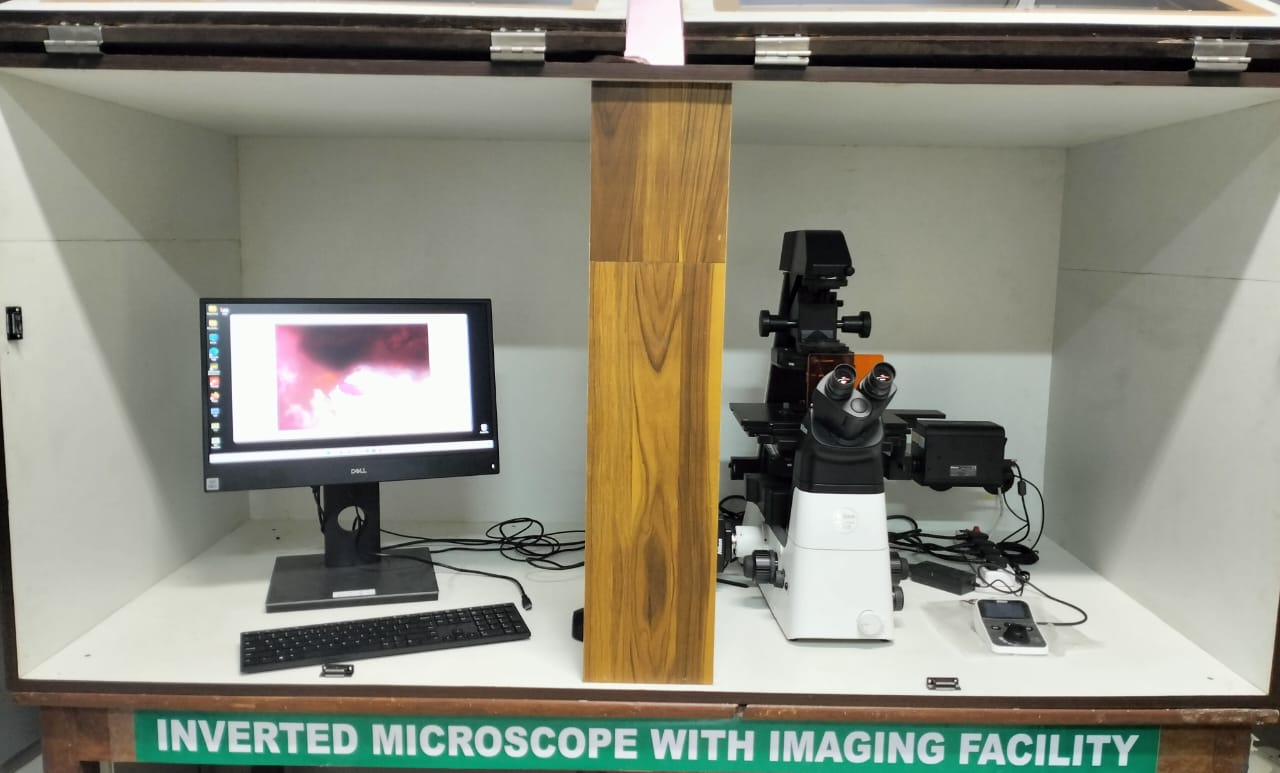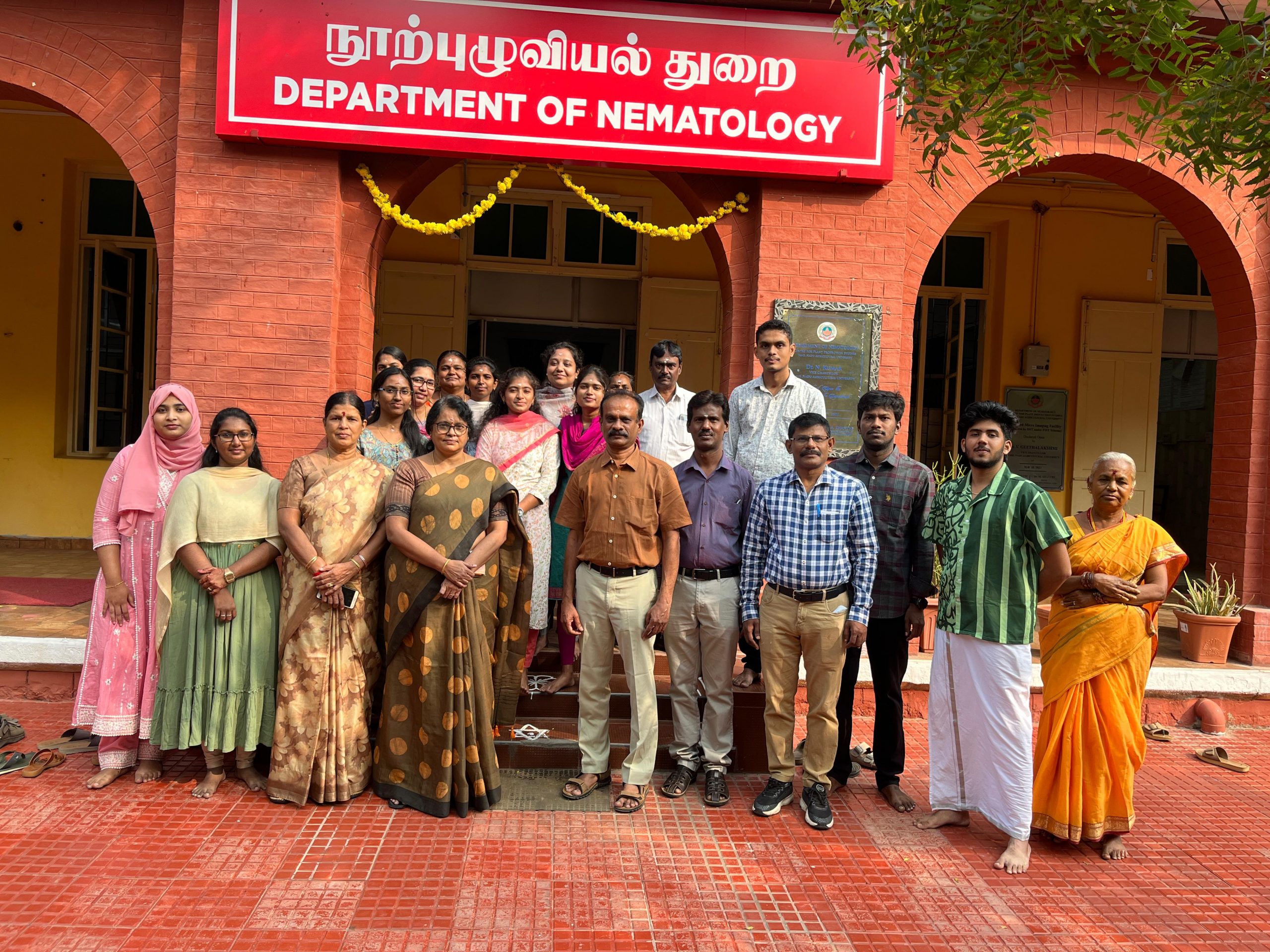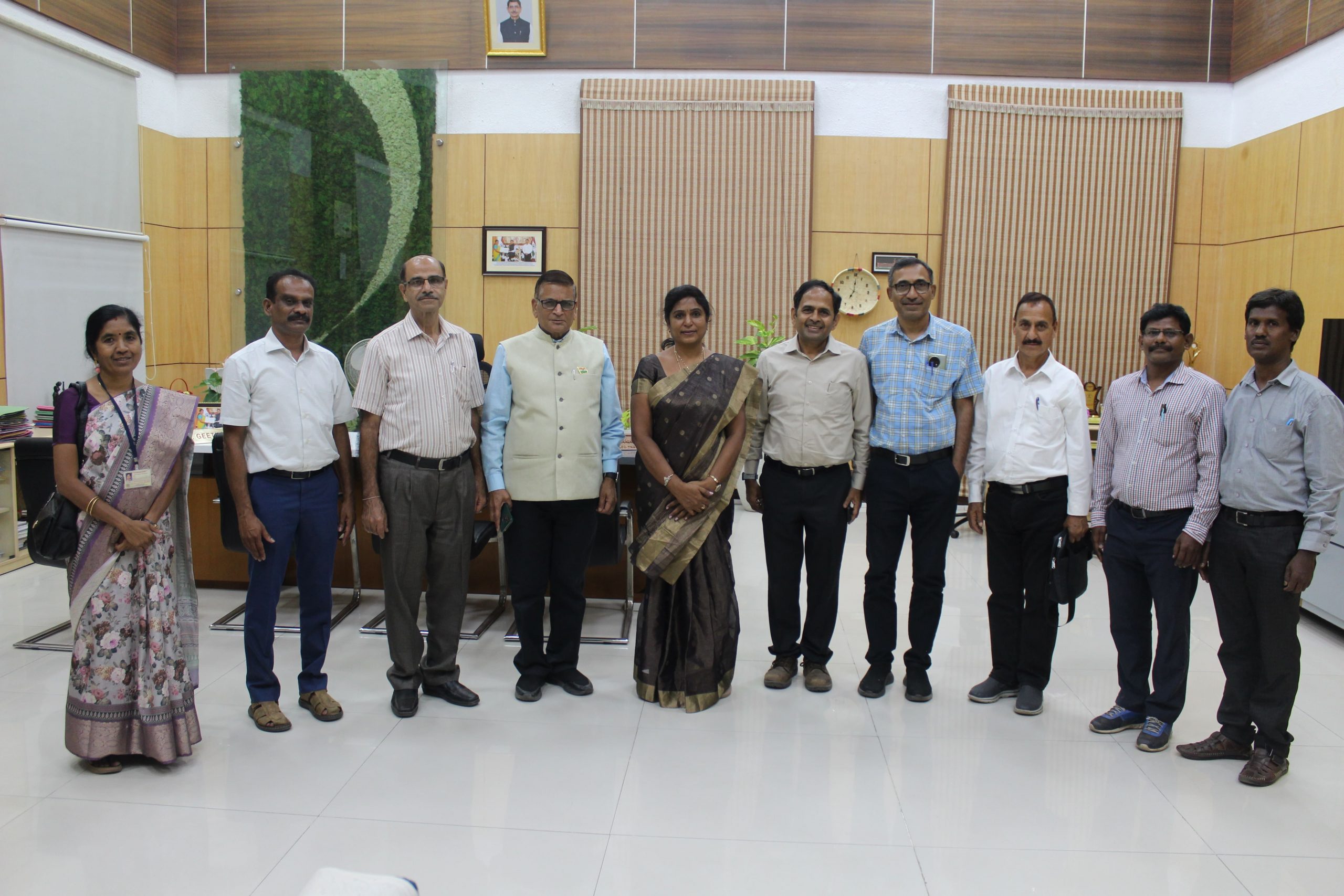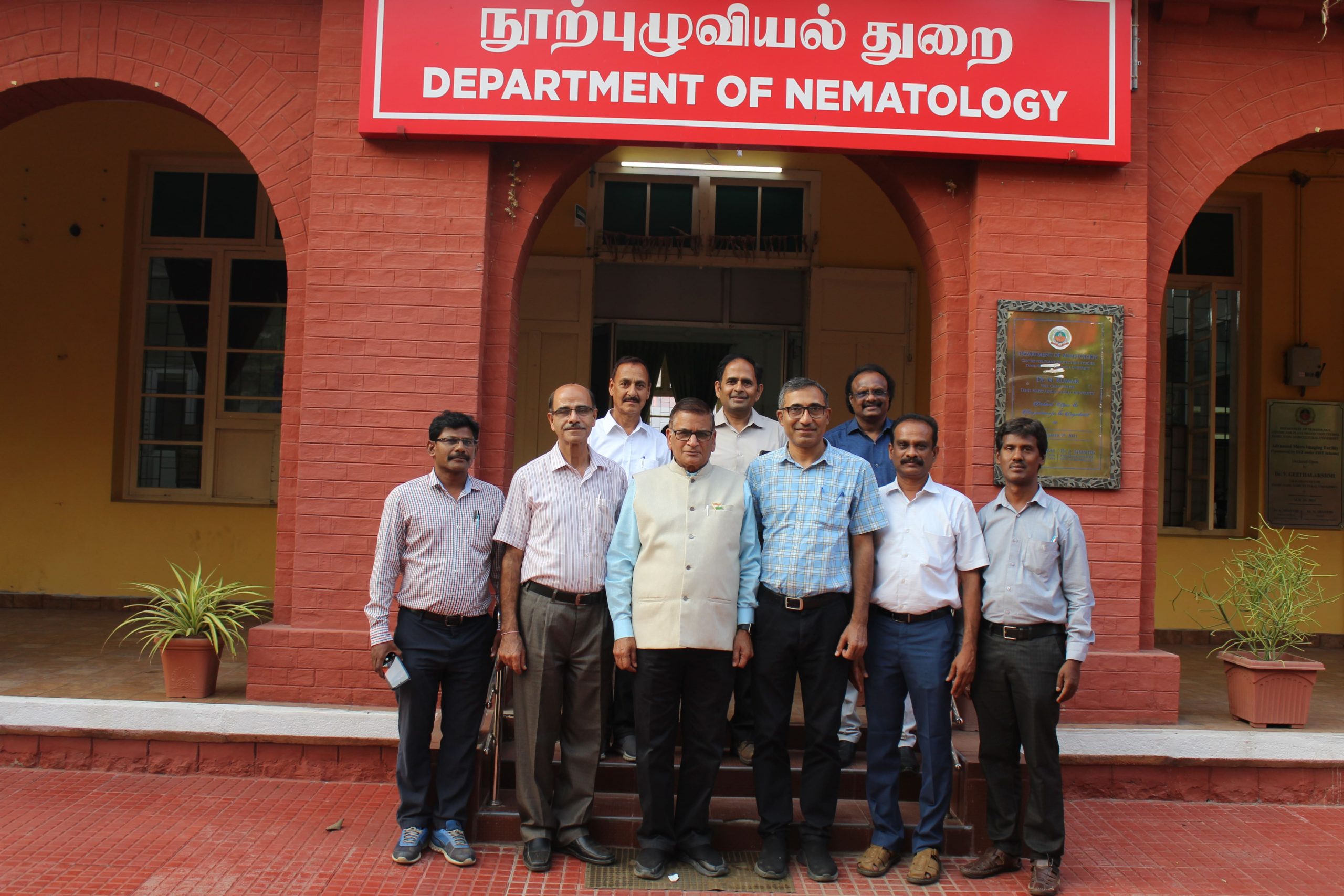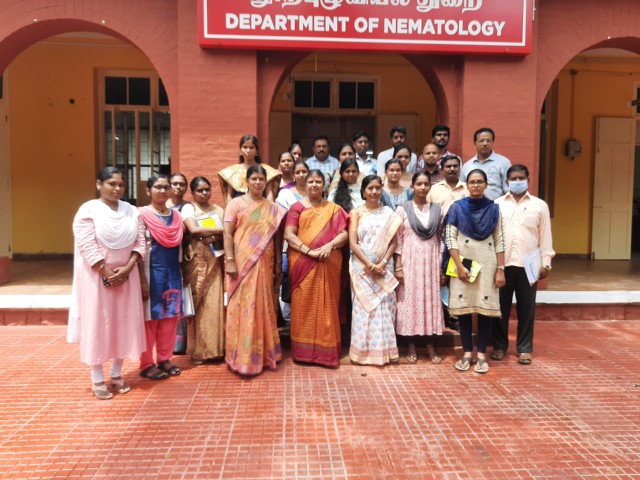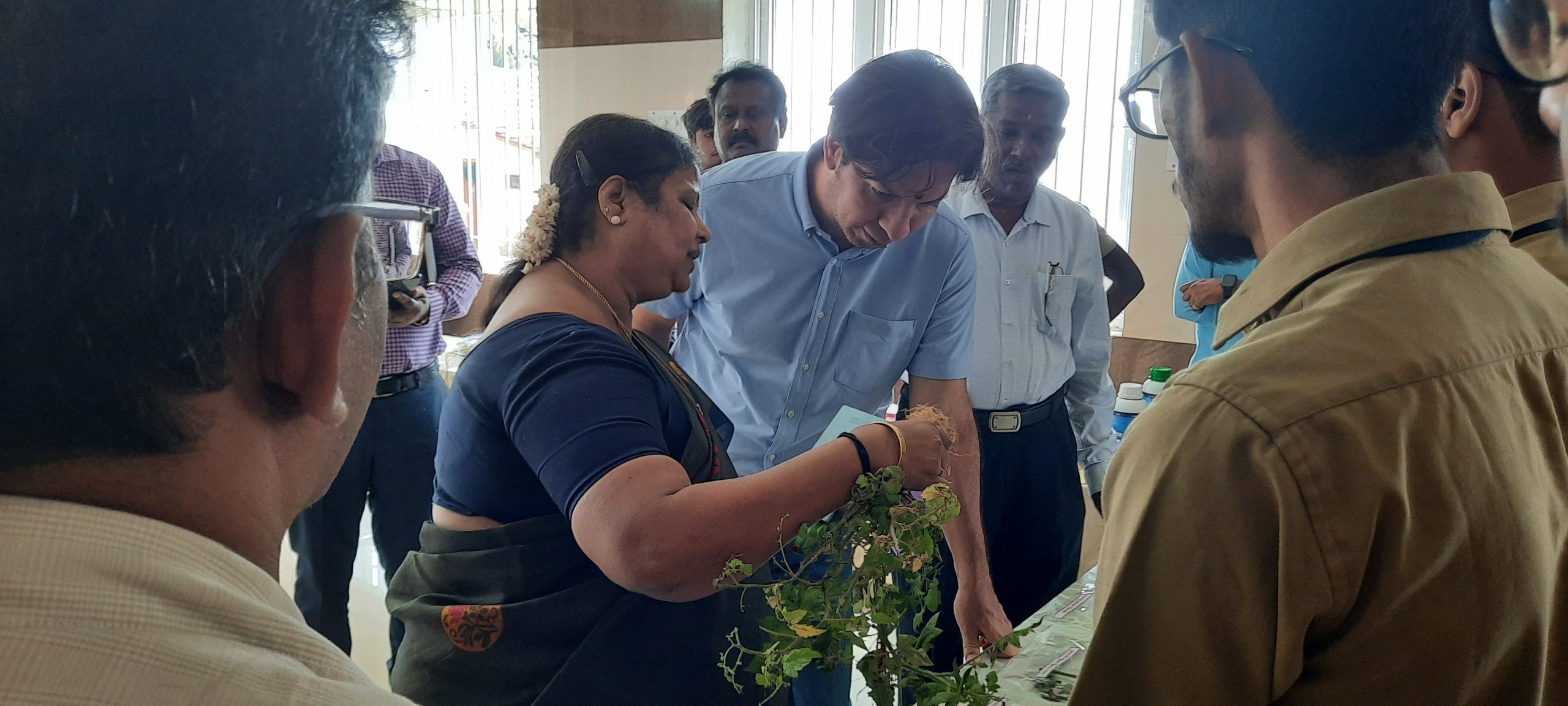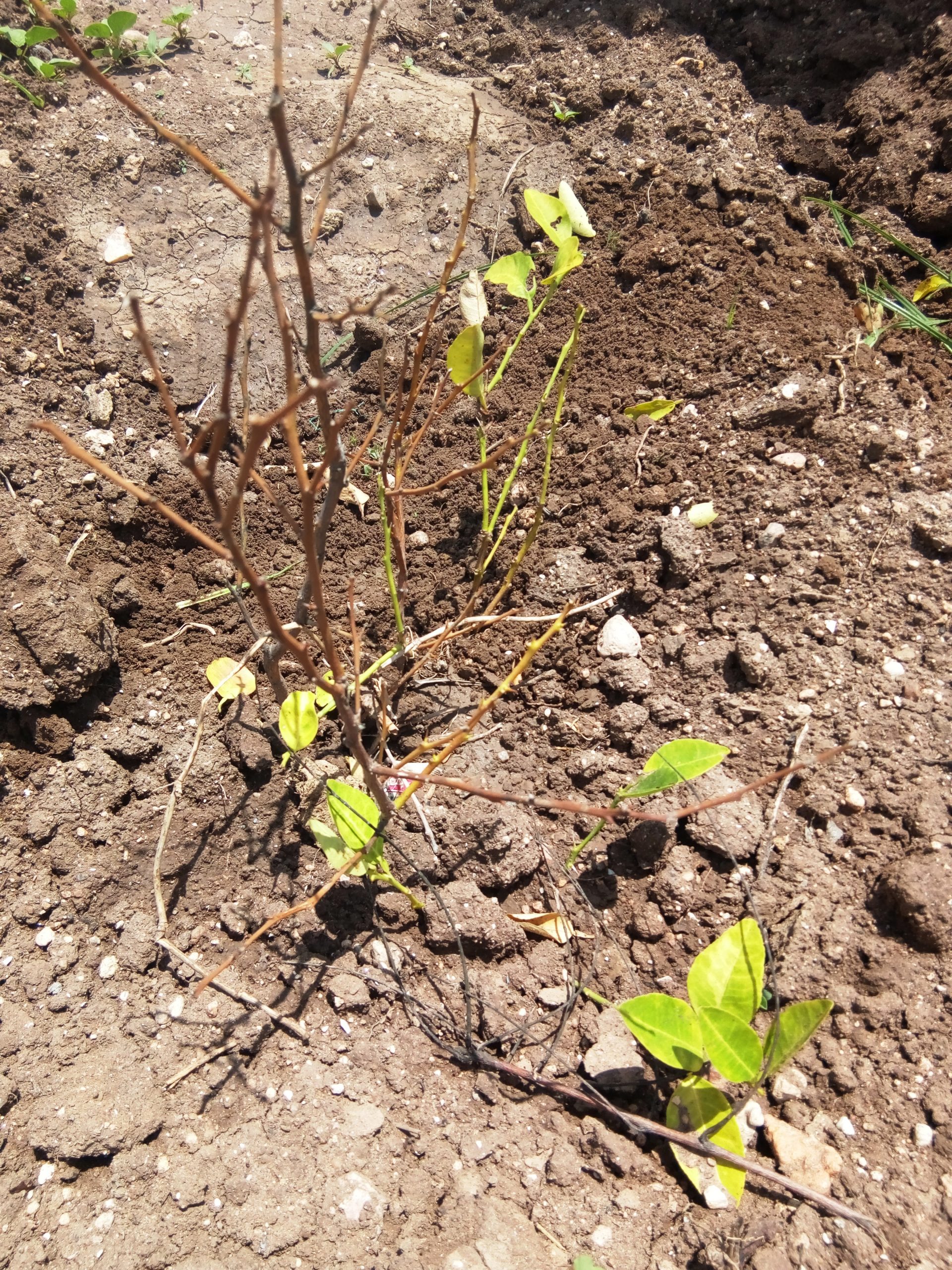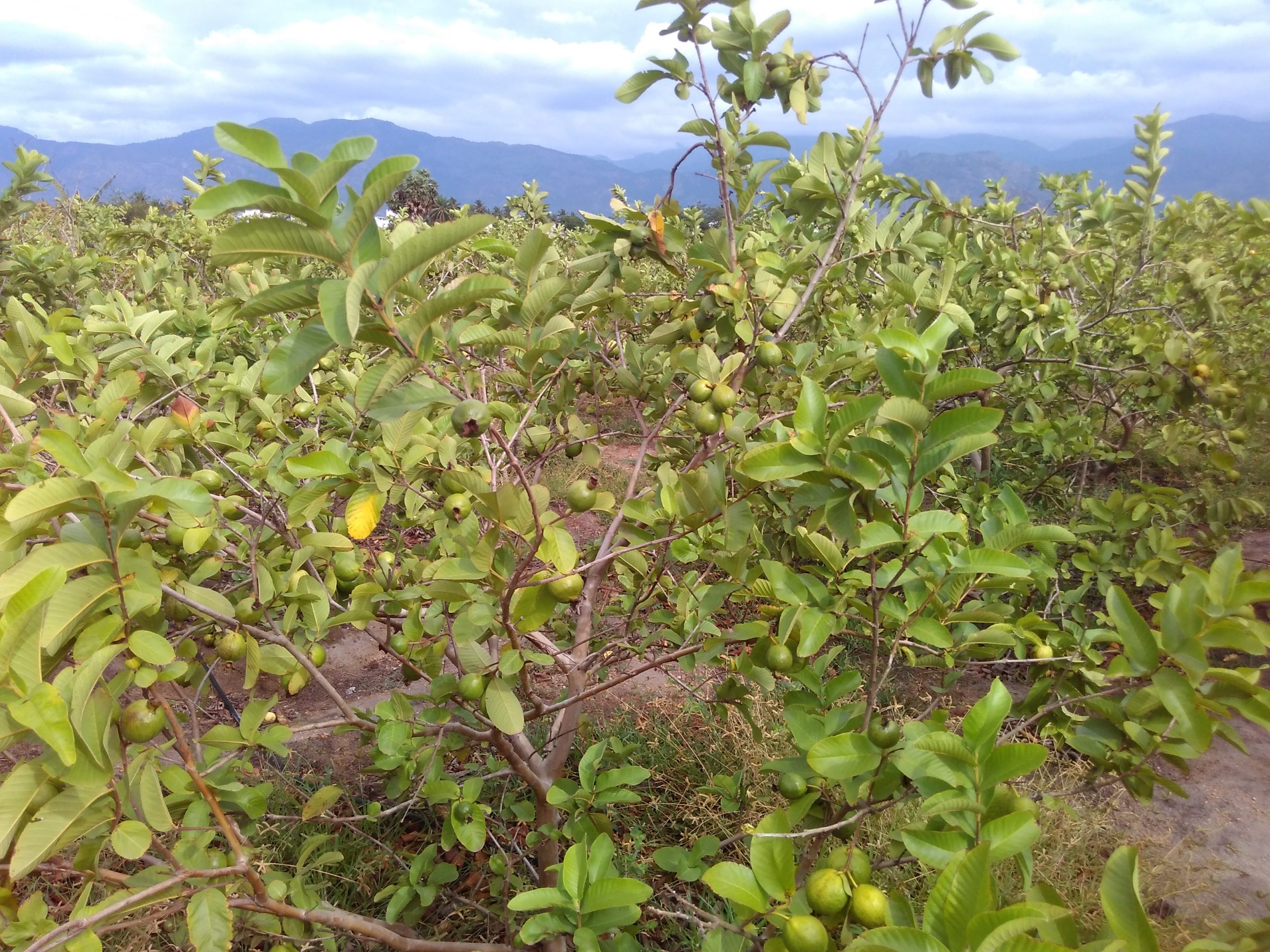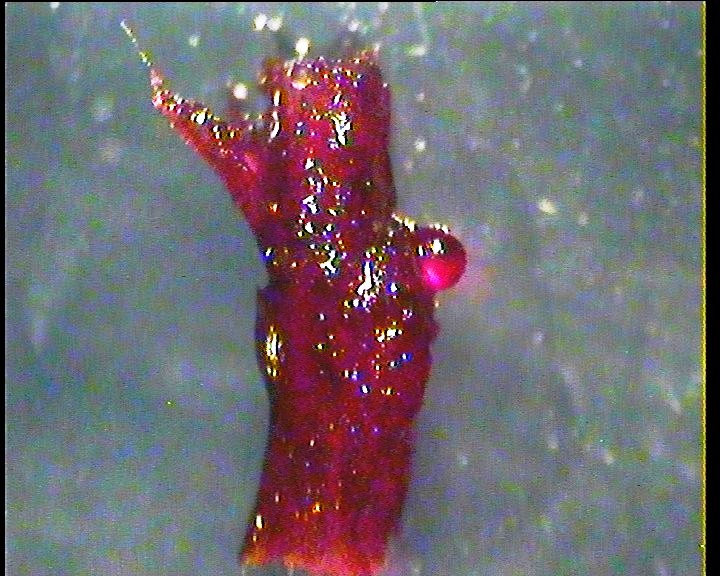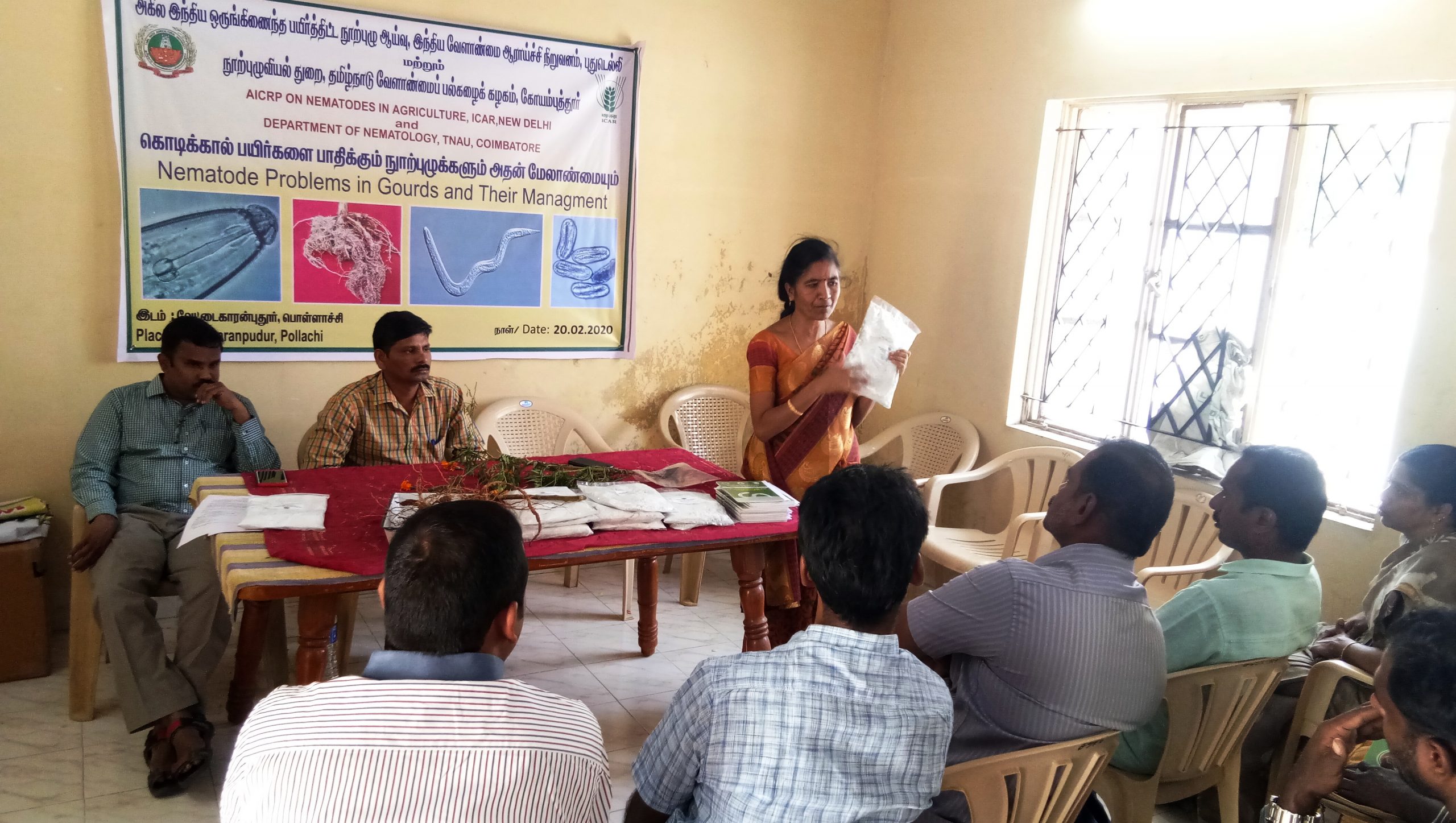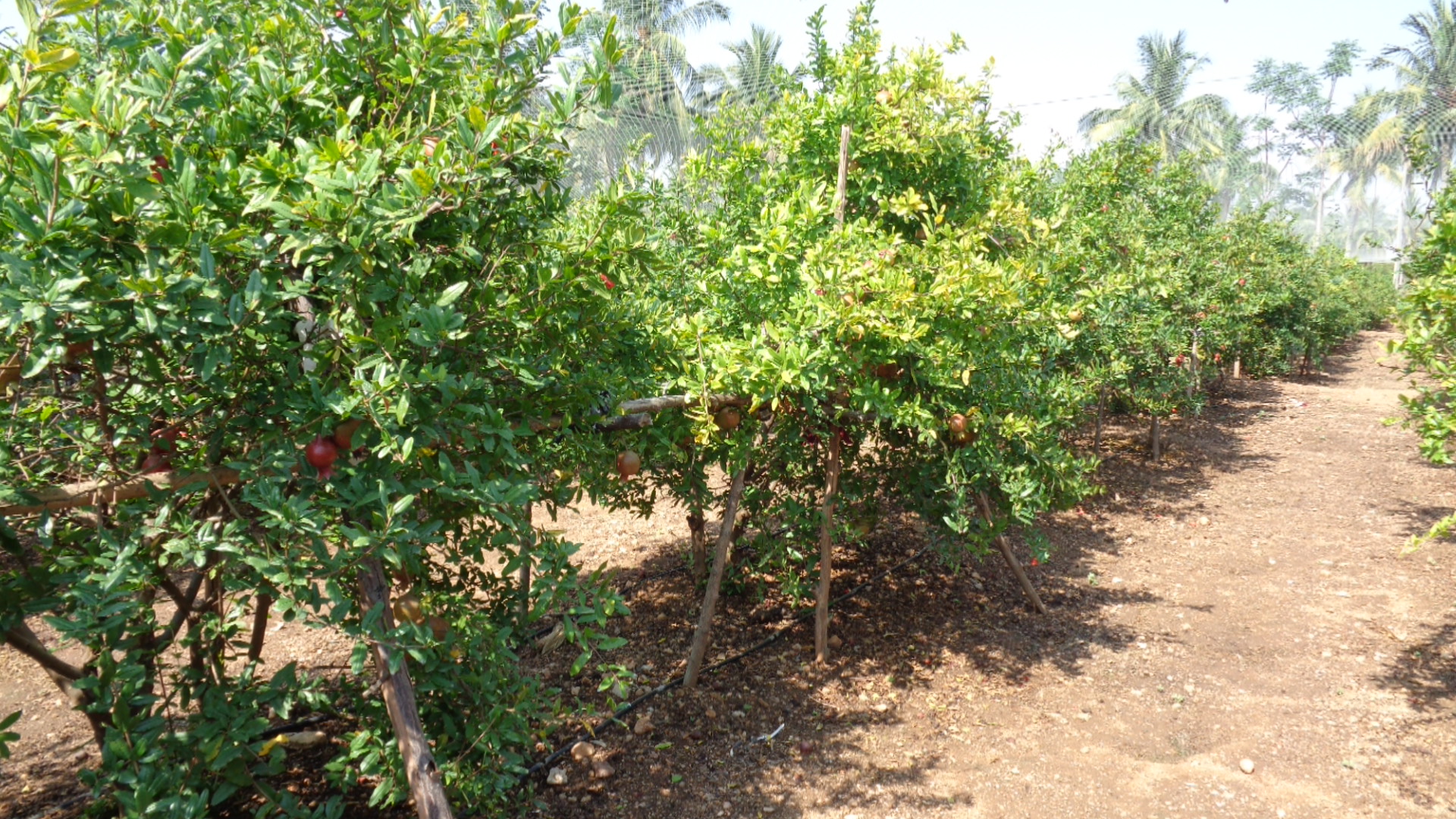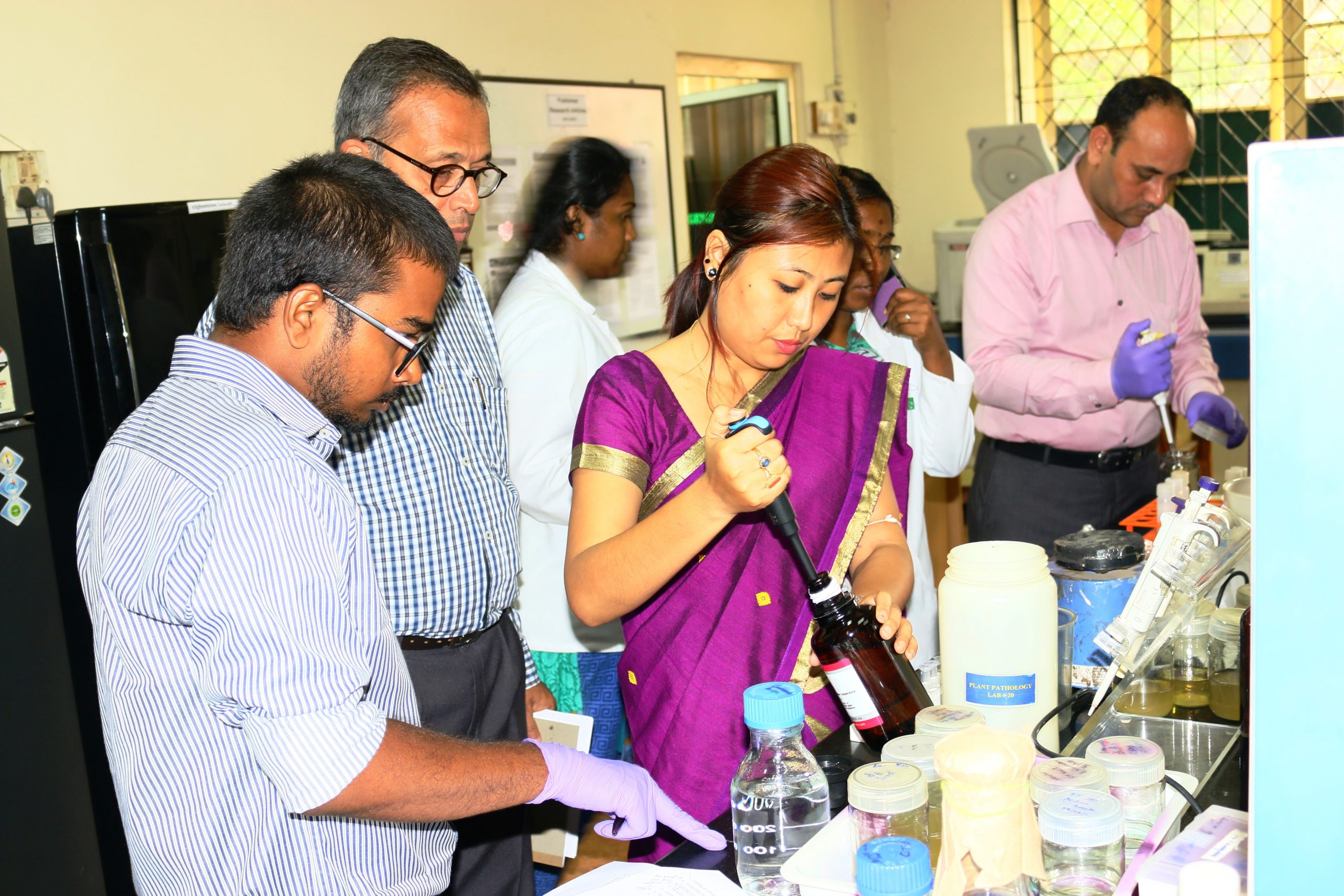Genesis
The importance of plant nematodes was realized by the administrators and the scientists of other disciplines when the prevalence of the golden nematode on potato in The Nilgiris was reported by F. G. W. Jones in 1961. Therefore, the ICAR had granted financial assistance for establishing a Nematology unit in The Nilgiris for taking up intensive studies on the potato cyst nematode. Detailed survey and mapping of the areas of prevalence of cyst nematode in The Nilgiris was initially taken up and on completion of this programme, application of nematicide, Fensulphothion (Dasanit 10G) was given on large scale at a heavy dose of 30kg/ha in order to eradicate the nematodes. The operation was done free of cost to the farmers under Indo-German Nilgiris Development Project during 1971-1975. Plant Quarantine measures were also initiated in 1971 by involving the Madras Agricultural Pests and Disease Act, 1914, declaring the golden nematode as pest and the district of the Nilgiris as notified area to prevent the spread of the nematode within and outside The Nilgiris and also to other potato growing areas in the country. Adequate precautions were also made to prevent the entry of cyst nematodes through seed tubers from abroad. Domestic quarantine centers were established at the entry points of The Nilgiris and the entry of infested tubers were checked.
Apart from the scheme on golden nematode, two co-ordinated schemes, one on the nematode parasites of cotton financed by the Indian Cotton Committee and the other on nematodes of vegetable, fruits and other crops sponsored by the Indian Council of Agricultural Research were in function at Coimbatore in the years 1963-1965. In the year 1979, ICAR scheme subsequently upgraded into All India Co-ordinated Project with a Project Co-ordinator at the Indian Agricultural Research Institute, New Delhi. Investigations were made on nematode parasites of sugarcane at sugarcane Research Station, Cuddalore on citrus and other fruit crops at the Horticultural Research Station, Periyakulam on medicinal plants under ICAR funding on burrowing nematode in banana.
Activities and Trainings
Development
The Rockefeller foundation provided assistance in training Dr. A. R. Seshadri, the first Nematologist of Agricultural College and Research Institute, Coimbatore by deputing him to pursue Ph.D at Davis, California, USA. The Rockefeller foundation had gifted compound microscopes, zoom dissection microscopes, laboratory equipments and a glasshouse structures which formed the foundation for the Department of Nematology. Simultaneously ICAR also sponsored a scheme in Ooty in 1963 to study the golden nematode in potato. Since Dr. A. R. Seshadri became the first Head of Division of Nematology, Indian Agricultural Research Institute, New Delhi in December 1967, the scientist trained under his able leadership was elevated from the post of Nematologist, to Professor and Head, Division of Nematology, Indian Agricultural Research Institute, New Delhi.
Establishment of Department
Tamil Nadu was the first state in the country to realize the importance of nematodes as crop pests and holds the distinction of having established the first Nematology laboratory in 1961 for conducting research on nematode pests at the Agricultural College and Research Institute, Coimbatore. The Nematology section was initially started with one Nematologist, two Research Assistants, two Agricultural Assistants and one Laboratory Assistant. During 1979, Master degree programme on Nematology was started by the Nematology section functioning under Department of Entomology, Subsequently the Department of Plant Nematology was established in the year 1980 in Tami Nadu Agricultural University, Coimbatore and Dr. T.S. Muthukrishnan served as first Head of the Department of Nematology. All India Nematology workshop and Nematology symposium was organized by Dept. of Nematology, TNAU, Coimbatore in the year 1981. The doctoral degree programme on Nematology was started in the year 1990 by the Department of Nematology. A national Nematology conference on “Innovations in Nematological Research for Sustainability, Challenges and a Roadmap Ahead” funded by ICAR was organized by Nematology Department, TNAU. During 2003 the Department of Nematology also organized a winter school on “Biological control of Plant Parasitic Nematodes”. Department of Nematology, TNAU, Coimbatore conducted three refresher courses funded by ICAR-AICRP-N such as ‘Refresher course in Nematology from 28th September 2015 to 9th October 2015, another one from 17th to 25th July 2017 and ‘Refresher course on bioagents’ from 18th to 29th July 2016 was conducted at TNAU, Cbe for the new incumbents working under the project across the country.
Mandate
- To teach Nematology to Undergraduate and Postgraduate students
- To conduct research on diagnosis and management of plant parasitic nematodes and to use entomopathogenic nematodes to manage insect pests
- To impart training to research scientist, farmers and extension officials on nematode diagnosis in crop plants and their management
I am text block. Click edit button to change this text. Lorem ipsum dolor sit amet, consectetur adipiscing elit. Ut elit tellus, luctus nec ullamcorper mattis, pulvinar dapibus leo.

